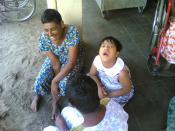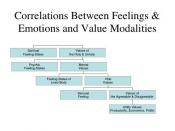The society in Anthem has chosen to address education by forming houses for children and then sending them off to jobs that their administrators choose for them. The House of the Students is place to which children are sent to at the age of five for learning. In this structure, children learn that, "'We are nothing. Mankind is all'" (21). After the House of Learning, at fifteen years old, the Council of Vocations assigns each child to a specific job. Equality 7-2521 secretly wishes that he would be sent to the Home of Scholars. However, he is sent to the Home of the Street Sweepers, the lowliest home of all. This reflects a value of society, because all misfits, whether they are too smart or too stupid, are sent to the Street Sweeper Home. The society feels a need to get rid of the abnormal people, so that all are equal.
Instead of encouraging outstanding students, they are silenced and put away. This reflects society's need for everyone to be the same. This is the way that the society in Anthem addresses the need for educational facilities.
Emotion is forbidden in the society in Anthem besides showing your love for your fellow brothers. This is done by slogans such as, "'We are one in all and all in one. There are no men but only the great WE, one, indivisible and forever'" (19). Because everyone is the same, one cannot exhibit more emotion towards one person than another. This is the great sin of the Transgression of Preference. It is also not proper to show emotion for no apparent reason. When Equality 7-2521 starts to sing aloud, he is reprimanded. When he says that he is happy, the Home Council answers, "How else can men be when they live for...


